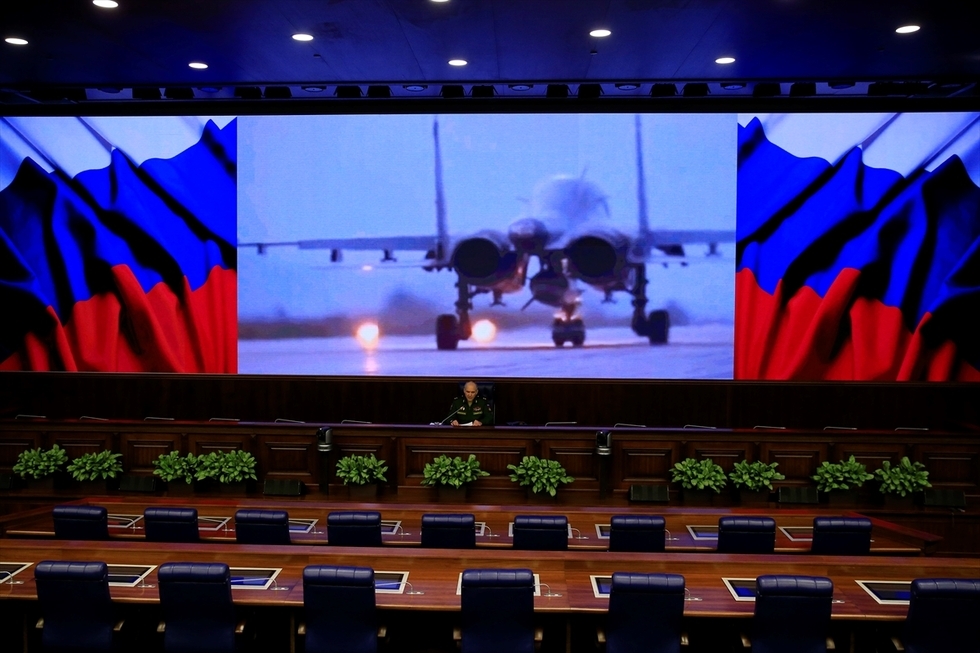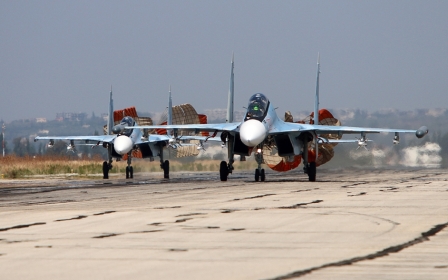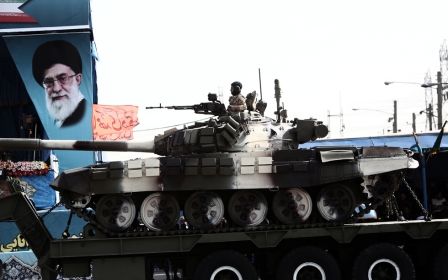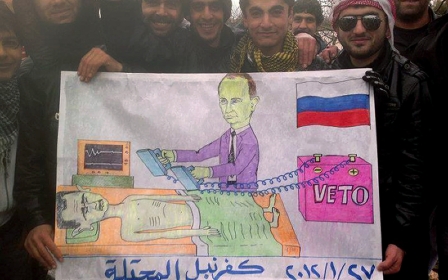Russian de-escalation in Syria widens gulf with Iran

Russia’s surprise decision to withdraw the bulk of its air fleet from Syria and dramatically reduce air strikes is a major development which foremost signals a shift towards the American position on the Syrian end game.
Coming on the heels of the cessation of hostilities announced late last month, the partial Russian withdrawal may be a turning point in the war and the beginning of a long and protracted peace process.
At the very least it is a key moment that heralds the passing of the peak points of the Syria war and the stabilisation of entrenched front lines. By any measure, it is bad news for the Syrian government (which aspires to reconquer the whole country) and its key ally Iran, which cannot decisively influence the diplomatic process going forward.
For their parts, both the Syrian and Iranian governments claimed that Russia’s decision was coordinated and did not come as a surprise. This line was reinforced by Admiral Ali Shamkhani, the secretary of Iran’s Supreme National Security Council, who stressed that both Iran and Russia will continue to support the Syrian government’s military campaign against “terrorist groups”.
Despite this apparent unity of purpose, both Damascus and Tehran are privately worried about Russian President Vladmir Putin’s next moves.
For Damascus, the withdrawal of Russian air power arrests the military momentum of recent months and forces it to negotiate in earnest with its deadly foes. For Tehran, the concerns have less to do with military considerations than on anxieties centred on a possible Russian over-alignment with Washington’s position.
Uneasy Partnership
The mainstream Western media has been keen to paint a picture of joint Iranian-Russian enterprise in Syria, with claims that Islamic Revolutionary Guards Corps (IRGC) Qods force commander General Qassam Soleimani had effectively persuaded Putin to directly intervene.
This version of the story has been implicitly denied by Iranian officials and military commanders, most notably by chief IRGC strategist Brigadier-General Hossein Salami whose interview with Iran's state broadcaster on 6 February alluded to independent Russian goals in Syria.
The reality is that Iran has from the beginnning been uneasy about the potential political and strategic consequences of Russia's intervention.
While undoubtedly pleased about the immediate military impact (which in some areas relieved Syrian forces of intolerable pressure), the Iranians were fearful of the diplomatic repercussions, not least a potential convergence of Russian and Western positions on fighting the Islamic State (IS) group and containing the overspill of the Syria conflict.
More specifically, and independently from the Syria conflict, Iran is worried of possible Russian and Israeli collusion, to the detriment of its Lebanese ally Hezbollah which has deployed considerable assets to the most critical Syrian conflict zones.
These fears have been reinforced by close tactical coordination between Russian and Israel over the skies, which not only prevented any “accidents” but most worryingly for the Iranians allowed Israel to continually violate Syria’s air space to target Hezbollah assets under the pretext of preventing the transfer of weaponry from Syria to Lebanon.
These Israeli attacks happen frequently, with the latest reported attack occurring late last month, and are aimed primarily at preventing Hezbollah and the IRGC Qods force from establishing a permanent presence in Syria, notably in Quneitra province which abuts the occupied Golan Heights.
The fear in Tehran is that as Russia moves to leverage its military success to secure a dominant role in the peace process, that it may become more vulnerable to Israeli pressure, specifically Israeli demands on the expulsion of Hezbollah forces from Syria.
Losing the peace?
Tehran’s anxiety on Russia’s subsequent moves is in part tied to the specific components of the Russia-Syria relationship. Unlike Iran, Syria maintains very close ties (bordering on a formal alliance) with Russia. Their military partnership dates back to 1971 and the opening of the naval base in Tartus.
Specifically, the Iranians are fearful of Russia using its influence to coerce Syria into enduring a protracted negotiation process which from the outset does not promise to secure peace on favourable terms.
Rhetoric aside, it is clear that Russia’s five-month military campaign has in fact brought it closer to Washington, as evidenced by the two powers' co-chairmanship of the International Syria Support Group (ISSG).
The cessation of hostilities has provided fresh momentum to stake out the broad contours of an eventual settlement under the strategic direction of the ISSG.
The key issues on which Washington and Moscow are likely to form consensus include autonomy for the eastern regions, up to and including territories held by some rebel groups in the Aleppo and Hama provinces; managing the ejection of the IS group; containing Kurdish ambitions (with a view to placating Turkey), and empowering elements of the opposition.
There is ample ground for disagreement between Tehran and Moscow on all these issues, not least the question of autonomy and the possible de-facto partition of Syria.
Ultimately Iran shares the Syrian government’s ambition of bringing the entire country back under government control. And contrary to Western reporting and analysis, Iran has the stomach for a long fight in Syria, a war of attrition that gradually contains and destroys rebellious and centrifugal forces.
By not having a seat at the high table, Iran risks being outmanoeuvred by Russia on some of the most important issues pertaining to the end game of the Syrian conflict.
- Mahan Abedin is an analyst of Iranian politics. He is the director of the research group Dysart Consulting.
The views expressed in this article belong to the author and do not necessarily reflect the editorial policy of Middle East Eye.
Photo: Sergei Rudskoi of the Russian Military General Staff, speaks to the media at the Ministry of Defence of the Russian Federation, in Moscow, Russia, on 18 March, 2016 (AA).
Middle East Eye propose une couverture et une analyse indépendantes et incomparables du Moyen-Orient, de l’Afrique du Nord et d’autres régions du monde. Pour en savoir plus sur la reprise de ce contenu et les frais qui s’appliquent, veuillez remplir ce formulaire [en anglais]. Pour en savoir plus sur MEE, cliquez ici [en anglais].





